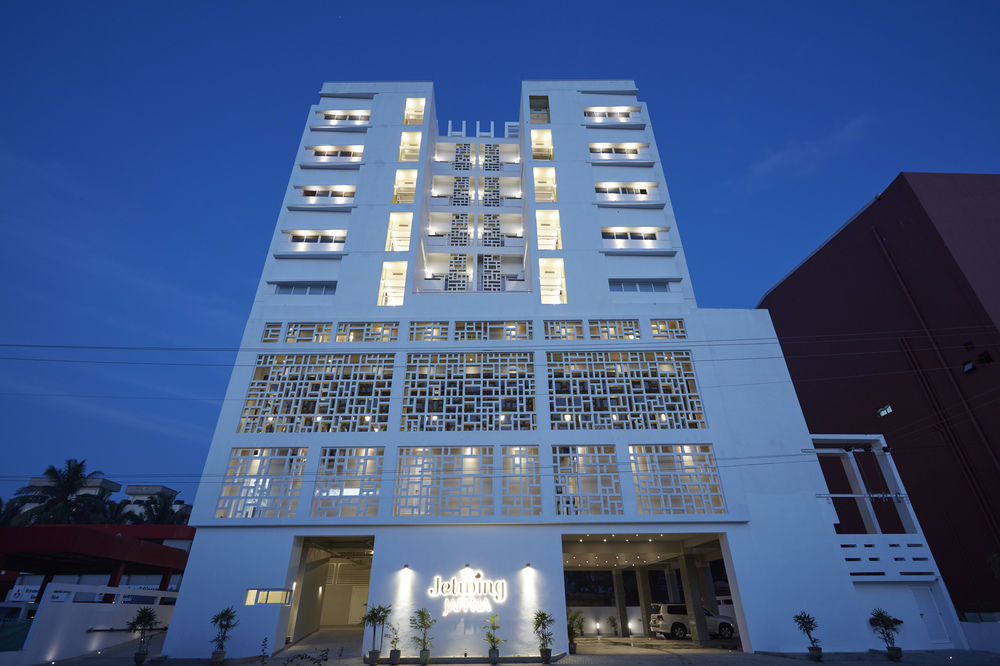
ジャフナホテル検索結果
AIが見つけた軒のホテルの最安値をご覧ください。
ベストホテル
最安値のホテル
ホテル等級
AIおすすめ
ジャフナベストホテル
ジャフナ 最低価格のホテル
最高評価のホテル
ジャフナにある4つ星ホテル
ジャフナにある3つ星ホテル
AIがおすすめする世界の旅行先
ジャフナ近くのホテル情報
ジャフナ 旅行に欠かせない情報
Jaffna (Tamil: யாழ்ப்பாணம், translit. Yāḻppāṇam, Sinhalese: යාපනය, translit. Yāpanaya) is the capital city of the Northern Province of Sri Lanka. It is the administrative headquarters of the Jaffna District located on a peninsula of the same name. With a population of 88,138 in 2012, Jaffna is Sri Lanka's 12th most populous city. Jaffna is approximately six miles (9.7 kilometres) from Kandarodai which served as an emporium in the Jaffna peninsula from classical antiquity. Jaffna's suburb Nallur served as the capital of the four-century-long medieval Jaffna Kingdom. Prior to the Sri Lankan civil war, it was Sri Lanka's second most populous city after Colombo. The 1980s insurgent uprising led to extensive damage, expulsion of part of the population, and military occupation. Since the end of civil war in 2009, refugees and internally displaced people have started to return to their homes and government and private sector reconstruction has begun.Historically, Jaffna has been a contested city. It was made into a colonial port town during the Portuguese occupation of the Jaffna peninsula in 1619 who lost it to the Dutch, only to lose it to the British in 1796. And during the post-Independence civil war the rebel Liberation Tigers of Tamil Eelam (LTTE) occupied Jaffna in 1986. The Indian Peace Keeping Force (IPKF) briefly occupied the city in 1987. The LTTE again occupied the city from 1989 until 1995, when the Sri Lankan military regained control.
The majority of the city’s population are Sri Lankan Tamils with a significant number of Sri Lankan Moors, Indian Tamils and other ethnic groups present in the city prior to the civil war. Most Sri Lankan Tamils are Hindus followed by Christians, Muslims and a small Buddhist minority. The city is home to number of educational institutions established during the colonial and post-colonial period. It also has number of commercial institutions, minor industrial units, banks, hotels and other government institutions. It is home to
 時間 UTC+06
時間 UTC+06 通貨 LKR
通貨 LKR 言語 Sinhala, Tamil, Englishis
言語 Sinhala, Tamil, EnglishisStaypiaだけの特別な特典
リアルタイムホテル最安値比較
AIが見つけたin ジャフナの軒のホテルのリアルタイム最安値を簡単に比較検索できます。
316万軒のホテルを最安値で予約
最低価格に最大31%追加メンバーシップ割引でさらにお得にご予約いただけます。
自分だけの
AIがリアルタイムで更新するジャフナ旅行情報で便利に旅行を準備しましょう。
よくある質問
一般的なホテルの場合、客室予約はキャンセル締切日前まで無料返金が可能です。キャンセル締切日以降は手数料が発生する場合がありますので、ホテルバウチャーまたはメニュー>マイ予約でキャンセル締切日をご確認ください。
ステピアでは、AIが収集した316万件のホテルの最安値はもちろん、会員限定の追加割引価格で人気ホテルを予約することができます。









